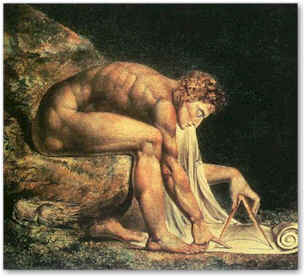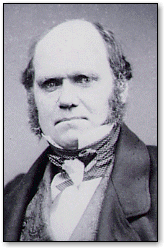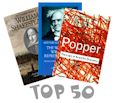![]()
![]()
The Great Britons Series.
![]()
Old Hickory
Winston Churchill has been named the greatest Briton of all time. It might be thought that the chief virtue of liberty was to display our potential for greatness; or to allow others to do so. This nation-wide poll attracted more than a million votes overall in a grand two hour concluding programme that went on from 9pm to 11pm on Sunday 24 November 2002. It ended a run of five weeks of two programmes each week, each lasting an hour. Churchill was certainly one of the best propagandists or spin-doctors. A fair assessment of Churchill by Stephen Berry can be found in his article on the LA Webpage. On 24 November there also began a story in the press about Churchill as a war criminal, which did the rounds of the papers the following few days. It was in response to The Fire (2002) Jorg Friedrich, a book serialised in the German paper Bild. C. P. Snow proposed a similar thesis in the 1960s.
If we measure greatness by a lasting contribution to human welfare then perhaps no politician or ruler can get into the first million. The BBC began showing ten programmes on 20 October of the top ten out of the top hundred. The ten programmes averaged about three million viewers each. The major newspapers carried the result on the front page next day. Voting for the top ten featured in the last five weeks was by phone or Internet after each programme and again during the concluding one so one could have eleven votes for one candidate. In a similar poll a few years ago Shakespeare came out on top, and Newton second, but they were never in the top three over the last five weeks; not even after the allotted programmes devoted to them. Churchill scored 447,423 votes. He beat his nearest rival, engineer Isambard Kingdom Brunel, by more than 56,000 votes. But Brunel had topped the list for most of the five weeks and he began top as the first programme was devoted to him and he had quite a good advocate in Jeremy Clarkson.
Most of the advocates were poor. Mo Mowlam, who presented the final programme on Churchill, and was thus an utter success, seemed no better than most of the rest to me. But she has been very popular these last ten years and that seems as odd to me as Diana Spencer’s popularity. Indeed, if Mo had died in an IRA or UDA bombing during her stay in Northern Ireland then she might well have beaten Diana into third place on this “Great Britons” list. To mean well is all in Britain today, and Martial’s maxim “he means well is no good unless he does well” is not compassionate enough for many. But Churchill might have still won it even without Mo, as he was never out of the top three throughout the five weeks. He finally got 28.7% of the vote. Summarising her argument, Mo said: “If Britain - its eccentricity, its big heartedness, its strength of character - has to be summed up in one person, it has to be Winston Churchill.” Proceeds from phone votes will fund a permanent memorial to Churchill at a venue yet to be decided.
Churchill had been even-money favourite with bookmaker William Hill to win the contest, with Diana at 6-1 and Brunel at 20-1. The book was closed after bets piled up on Brunel.

Newton as seen by Blake
Most of the chosen top ten should not even have been in the top hundred, some not in the first million; however the three best candidates imaginable were also there in contention viz. Newton, Shakespeare and Darwin. They would not be out of place in a world top ten.

Charles Darwin
During the two-hour final programme Clarkson again showed himself by far the best advocate. All ten advocates were to meet but a few had replacements stand in for them, A. A. Gill for the actress Fiona Shaw as the Shakespeare advocate, for example. But it was left to a swotty looking schoolgirl in the audience to make many of the best points for Shakespeare. However, the big three got a fair airing in the final debate programme but had fairly lame films done on them. Lennon had the worst advocate of the lot. The Daily Telegraph reported next day (p1) that Clarkson was disappointed only to come second. He got 24.2% of the vote. During the debate he rightly said that many of the votes were as thoughtless as the ones for the songs in the pop chart a week before would be for the all time best song. He thought this was the case with Churchill; as well as the more obvious candidates favoured by the flippant, like John Lennon and Diana Spencer. The chairman, Anne Robinson, needed to protect the other advocates from his overbearing lampooning once or twice. In Brunel he had the fourth-best candidate in the selected ten, so he often had the facts on his side. He was able to point to a proud achievement in waterways, tunnels, bridges, railways and great ships. Paddington station remains to be seen by many and that is not the only legacy of Brunel to be seen, though it is perhaps the one convenient for more people than the others. It is starkly obvious what Brunel has done for the public, though he was also a maker of white elephants. There was some concern over whether the voting could be fair. Was it restricted to one vote each household? What about the many households that houses large families that uses but one phone? The BBC said it had identified people trying to rig the voting and their choices had been eliminated. They were satisfied that the voting was fair. Brunel’s early lead was thought to be owing to a campaign by students from Brunel University who aimed to get their institution’s namesake out in front, but that was deemed “legitimate” by the BBC. Similarly, they accepted campaigns by fans of other contenders like John Lennon and Princess Diana.
In third place was Diana, the sometime Princess of Wales. Rosie Boycott was her advocate and she shamelessly held that though Diana was known as “Thicky Spencer” at school she nevertheless was great, in her own special way. She was so compassionate and in this she beat all comers. She inspired people throughout the world just because of her weakness, as she held you can fail yet still go on to do well. She was so brave to confess to all those weaknesses that she had! She got 14.3% of the vote. In fourth place was Darwin with 6.9% of the vote. Fifth was Shakespeare with 6.7% of the vote. Sixth was Newton with 5.2% of the vote. Seventh was Elizabeth I with 4.5% of the vote. Eighth was Lennon with 4.4% of the vote. Ninth was Nelson with 3.2 % of the vote and tenth was Cromwell with 2.9%. There were many in the lower yet still high places that even made Diana respectable e.g. Johnny Rotten at No. 87. Clearly, most of the hundred were over-rated and do not even belong in the first thousand or even the first million in many cases, and Diana is a case in point.
OLD HICKORY
Some are born great, some achieve greatness and some have greatness thrust upon them.” SHAKESPEARE
![]()

Top 50 books of all time : by Old Hickory:-
"I have limited the selection to the books I have read. I keep to the norm of not recommending to others books I have yet to read. Clearly, books I have not read by now suggests a judgement of some sort."
Further reading:
![]()
Most of the advocates
were poor. Mo Mowlam,
who presented the final
programme on Churchill,
and was thus an utter
success, seemed no better
than most of the rest to
me. But she has been very
popular these last ten
years and that seems as
odd to me as Diana
Spencer’s popularity.
Indeed, if Mo had died in
an IRA or UDA bombing
during her stay in
Northern Ireland then she
might well have beaten
Diana into third place on
this “Great Britons” list.
To mean well is all in
Britain today, and
Martial’s maxim “he
means well is no good
unless he does well” is
not compassionate
enough for many.
![]()
![]()
Most of the chosen top ten
should not even have
been in the top hundred,
some not in the first
million; however the
three best candidates
imaginable were also
there in contention viz.
Newton, Shakespeare and
Darwin. They would not
be out of place in a world
top ten.
![]()
![]()
In third place was Diana,
the sometime Princess of
Wales. Rosie Boycott was
her advocate and she
shamelessly held that
though Diana was known
as “Thicky Spencer” at
school she nevertheless
was great, in her own
special way. She was so
compassionate and in this
she beat all comers. She
inspired people
throughout the world just
because of her weakness,
as she held you can fail
yet still go on to do well.
She was so brave to
confess to all those
weaknesses that she had!
![]()